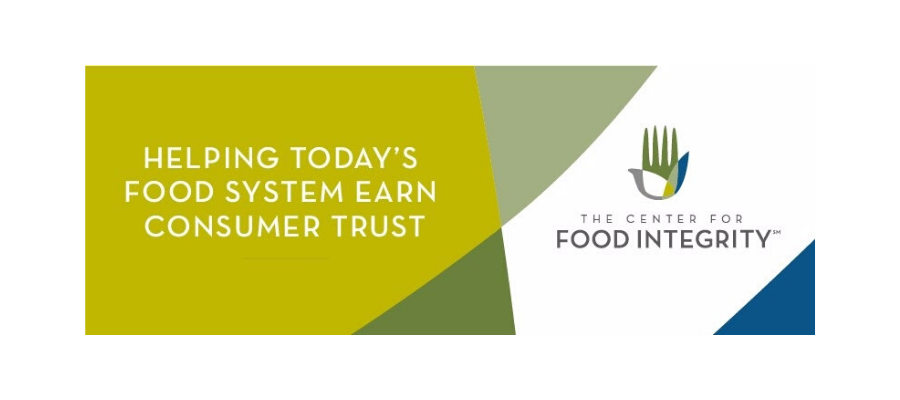A new study on the country’s most trusted brands underscores the urgency for food companies to keep sustainability front and center if they hope to earn the trust and confidence of the generations driving food trends, according to The Center for Food Integrity (CFI).
In the first annual list of The 25 Most Trusted Brands in America from Morning Consult, four legacy brands made the top 10 for Baby Boomers, but few to none made that same list for younger generations.
“While the familiarity and nostalgia of long-time companies may equate to trust for older consumer segments, those factors don’t resonate with younger populations who instead want to know what companies are doing for people, animals and our planet,” said Charlie Arnot, CFI CEO.
Specifically, Hershey, Cheerios, M&Ms and Campbell’s Soup made the Baby Boomer Top 10. For Generation X, only two of those legacy brands made the list. Only one made the millennial Top 10 and no food brands made the Gen Z Adults list.
In this survey, and others, younger Americans are more interested in a company’s ethics.
In the Morning Consult survey having strong ethical or political values, treating employees fairly and producing products in an ethically responsible way are priorities. Research from The Center for Food Integrity also shows that younger generations feel they know more about food production and they have a greater interest in learning more. In other words, they are active information seekers who are more likely to share information and opinions.
“They are influencers whose attitudes are helping to drive unprecedented pressure on the food system to be more sustainable,” said Arnot. “However, the key for food companies – legacy and otherwise – is not to simply latch on to the latest sustainability trend, but instead assess and make sustainability choices that carefully weigh and transparently communicate the tradeoffs of decisions.”
Weighing the Tradeoffs
A variety of groups and other organizations are harnessing the increased interest in sustainability to capture opportunity or promote a specific agenda. As a result, a new and growing challenge is the focus on a single ingredient, process or practice without accounting for the potential impact on the entire food system.
“With so much at stake, the food system must cautiously consider tradeoffs before caving to demands that are deemed sustainable, but may fall short and stifle the technology and innovation that’s truly helping produce more food, more sustainably,” he said.
Arnot points to the push for slower growing broiler chickens, amid concerns about the faster growing birds.
“This may sound good on the surface. However, the National Chicken Council points out that raising slower growing chickens means significantly more time on farm for the birds, a tremendous increase in feed, water, land and fuel consumption, more animal waste and increased prices,” said Arnot. “If only one-third of broiler chicken producers switch to slower-growing breeds, nearly 1.5 billion more birds would be needed each year to produce the same amount of meat currently produced.”
Another example is the call to ban genetically engineered salmon. Consumer demand in the U.S. for salmon so far outstrips supply that the U.S. imports almost 90 percent of all Atlantic salmon, he said. In addition, overfishing on a global basis means that a third of commercial fish stocks are being harvested at biologically unsustainable levels. “Yet, there are calls to ban genetically engineered salmon that has been deemed safe and can be produced efficiently, year-round and with a low carbon footprint on farms in Indiana,” said Arnot.
Three Steps to Decision-Making
Arnot recommends a three-pronged approach for food companies to navigate demands, determine impacts and choose sustainability practices that are truly sustainable.
The process begins with setting priorities based on company values and those of its stakeholders. Defining values provides a framework from which to make all decisions going forward, he said.
“Second, conduct a comprehensive assessment of the potential impacts of the recommended changes on the company, its supply chain and consumers. Leave no stone unturned. This is a process that takes time, but the outcome is worth the investment,” said Arnot.
The first two steps lay a solid groundwork for the third, which includes effectively communicating decisions to both the group making the request and the public in a way that’s transparent and earns trust.
“If you’ve done your research, you can confidently justify any decision that speaks to overarching values like animal wellbeing, environmental stewardship, food safety and worker safety,” said Arnot.
Without a values-based framework from which to make and communicate decisions, the food system is venturing down a dangerous path. “Consumers – young and old – will see through any half-hearted efforts. And simply jumping on the latest sustainability trend without careful consideration of the consequences could backfire.”
Arnot urges companies not to rush into commitments before fully understanding the potential impacts and to dedicate the resources necessary to make decisions that they can confidently stand behind for the long-term.
For more information, visit www.foodintegrity.org
Contact:
Jana McGuire
402-430-8723
jana.mcguire@foodintegrity.org
The Center for Food Integrity is a not-for-profit organization that helps today’s food system earn consumer trust. Its members and project partners, who represent the diversity of the food system, are committed to providing accurate information and working together to address important issues in food and agriculture. The Center does not lobby or advocate for individual companies or brands. For more information, visit www.foodintegrity.org.
